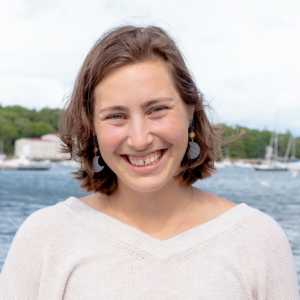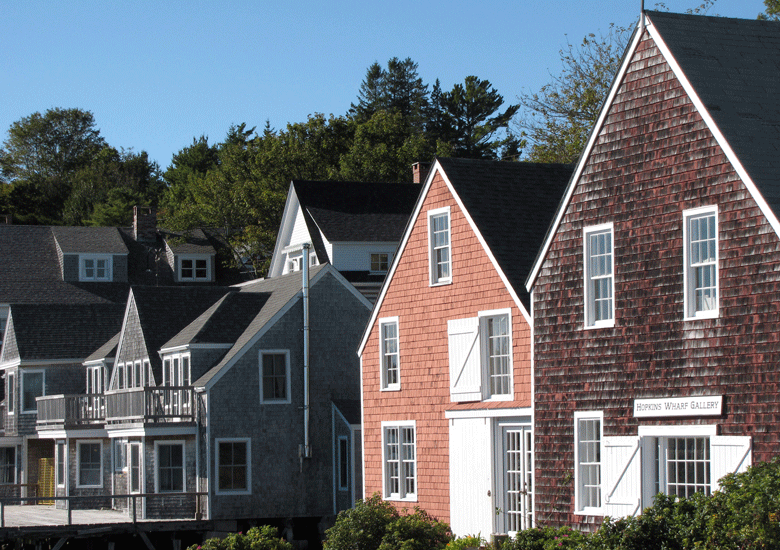Reflections is written by Island Fellows, recent college grads who do community service work on Maine islands and in coastal communities through the Island Institute, publisher of The Working Waterfront.
When I arrived on North Haven as an Island Institute Island Fellow, the first question asked of me as I was introduced around the community was: “Where are you living?”
The first time I answered, I used my street address and received only confused looks. I tried again. “It’s the house right behind the post office.” This still didn’t do the trick. “Who owns the house? Who lived there before you?”
The third time someone asked me this question, I managed to get it right on the first try. When I answered with the name—not of the landlord, nor the family who rented it last, but one of the earlier owners, I was rewarded with a nod then the statement, “That house has a great kitchen.”
Asking me where I live is a fact-finding mission, a means of filing away information…
Responses like this were normal. “I lived there once” or “I used to hang out in that house all the time.” Even the Spectrum man who came to fix my internet had stories about visiting the house under previous tenants. It seems almost everyone I speak to has a personal connection to the house I am living in.
Through answering the (not so) simple question, I learned a lot about different aspects of island living.

This question illuminated a way of understanding place, of connecting to people and memories across space and time. Official place names and reference systems don’t hold much weight here. What matters is a knowledge of place and history, understanding the movements of people and events from decades ago through today.
For longtime residents, knowing where I lived seemed to be a way they could fit me into the broader fabric of the island, attaching me—a stranger—to a familiar landmark.
Beyond fitting me into the island landscape, knowing my housing situation and, importantly, how I came by it, helps update people’s knowledge of available housing on the island.
Housing on North Haven is a major problem, one that extends across Maine’s islands and coastal towns. Asking me where I live is a fact-finding mission, a means of filing away information for a future date—knowing the owner is willing to rent, finding out if it is year-round housing or just for nine months of the year, learning when I am moving out and if it will be available afterwards.
I learned how tenuous housing on the island is—the revolving doors of some homes, welcoming tenant after tenant until the day someone is lucky enough to find a permanent year-round living situation. Or, until they give in and move off island.
This question highlights the ways information is shared or kept secret, and the invaluable advantage of having deep ties and connections to place and people in order to find housing. But even then, as I have learned, you must get lucky. There is no guarantee for anyone anymore, regardless of how strongly connected you are in North Haven; year-round housing seems to come down to luck, and a lot of it.
My work on North Haven has me diving into the housing crisis here. Housing is central to so many challenges North Haven and similar towns and islands are facing.
How do you continue supporting a school when no families can find a place to live? How do you sustain a year-round economy or keep up with seasonal demands if you can’t house a workforce? How do you ensure sustainable, affordable housing?
As I begin working more closely on North Haven’s housing crisis (a task I am nowhere near the first to tackle, nor will I be the last), there seem to be endless questions and challenges. However, North Haven has a unique opportunity too. We are a small community with a wealth of local, regional, and state resources to look to. We have an opportunity to innovate and think creatively about how the tools at our disposal can be used in new ways to help us.
While I am not naive enough to believe the housing crisis will abate during my short tenure here, I do hope the question of “where are you living” is easier to answer for the next generation of North Haveners.
Mia Colloredo-Mansfeld works with the town of North Haven and the North Haven Collective facilitating conversations, collecting data, and developing webpages and communications. She grew up in Iowa and North Carolina and graduated from the University of North Carolina with a degree in geography and environmental studies.





